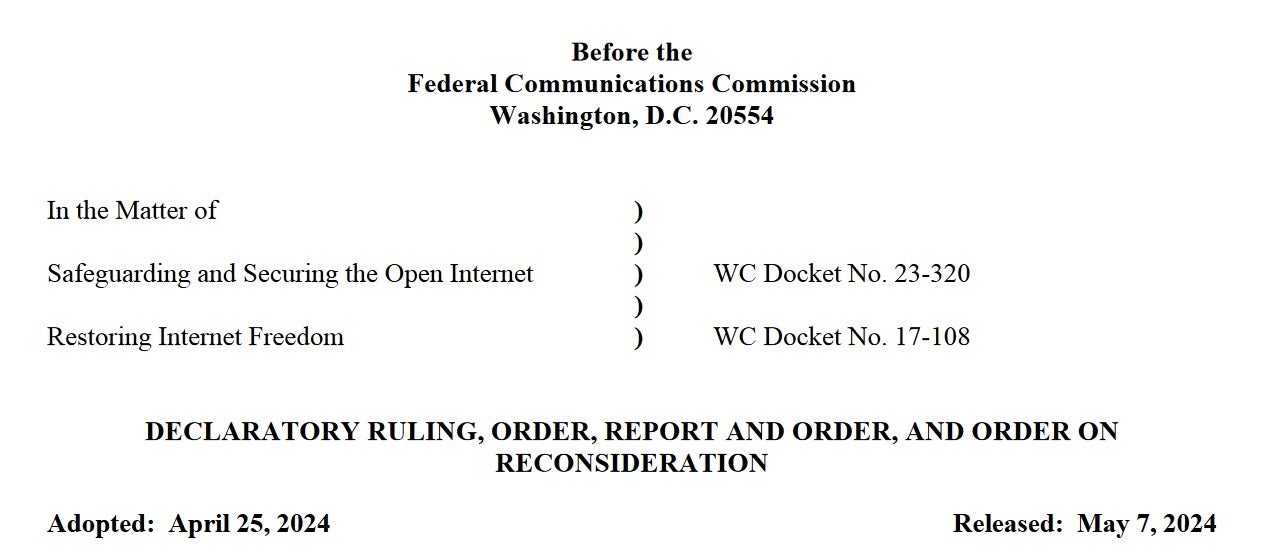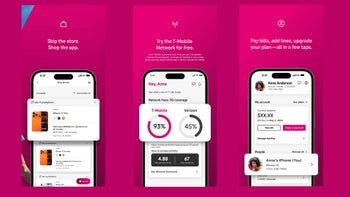FCC closes net neutrality loophole that could have left customers paying more for faster gaming apps

Late last month the FCC brought back net neutrality thanks to a 3-2 vote across party lines as the Democratic majority simply reversed what the then-Republican majority did in 2018 in removing the net neutrality rules from the books. Net neutrality treats all internet streams the same and it prevents carriers and ISPs from charging content providers big bucks to access "faster lanes." Eventually, the public would be expected to pay for faster streaming through hikes in monthly subscription fees.
The first draft of the new net neutrality rules left a loophole for ISPs and wireless carriers
The net neutrality rules also prevent a wireless provider from blocking texts and other messages that the carrier might not agree with. Per Ars Technica, the FCC didn't release the Final Draft of its order until yesterday even though the voting took place last month. The Final Draft includes some changes made to the draft version that was released before the vote was taken.

The FCC released the Final Draft of its net neutrality rules on May 7th
The first draft would have allowed ISPs to provide "fast lanes" for certain applications as long as the application provider wouldn't have to pay for the special treatment that would provide them with a faster internet stream. Instead, consumers would be expected to pay for the faster streams. The initial draft didn't address such scenarios and only explicitly blocked ISPs from slowing down applications. ISPs could have taken advantage of this loophole by charging customers more for certain content to be streamed over a "fast lane."
The loophole would use a technology called "network slicing" that would create faster lanes for certain categories of apps such as gaming and charge consumers more for plans that offer faster speeds for these apps. Network equipment manufacturer Ericsson, in a report on monetizing cloud gaming, said that carriers could collect more money from gamers by charging them "up to $10.99 more for a guaranteed gaming experience on top of their 5G monthly subscription."
Michael Calabrese, director of the Open Technology Institute's Wireless Future Project, notes that mobile carriers can't use "network slicing" to offer some broadband customers a guaranteed quality of service for video conferencing from some customers but not others. Standford Law Professor Barbara van Schewick said the FCC's "final order makes clear that the no-throttling rule prohibits ISPs from speeding up as well as slowing down apps or categories of apps. That's because treating some favored applications better than others has the same effect as slowing down disfavored apps—it makes it harder for the disfavored apps to compete."
Legislation is needed to prevent net neutrality from coming and going every four to eight years
Those who support net neutrality state that in these scenarios, offering different lanes for different types of traffic would "degrade" the quality of the content that isn't being favored. The FCC said, "We clarify that a BIAS [Broadband Internet Access Service] provider's decision to speed up 'on the basis of Internet content, applications, or services' would 'impair or degrade' other content, applications, or services which are not given the same treatment."
The clarification means that speeding up content is banned because the no-throttling rule says that ISPs "shall not impair or degrade lawful Internet traffic on the basis of Internet content, application, or service." Professor van Schewick told Ars Technica that the FCC's final draft "clearly prohibits ISPs from limiting fast lanes to apps or categories of apps they select." Broadband providers plan to sue the FCC to prevent the regulation from taking place.
But what is really needed is legislation to be passed that would make net neutrality a law. Otherwise we could continue to see net neutrality come and go every time a new party comes into power. For example, Net neutrality was created during the Obama era, taken away during the Trump years, and returned under the Biden administration. Passing a net neutrality law could help carriers with their long-term planning since they wouldn't have to wonder whether they need to make net neutrality rules part of their long-term budgeting.
Follow us on Google News












Things that are NOT allowed:
To help keep our community safe and free from spam, we apply temporary limits to newly created accounts: